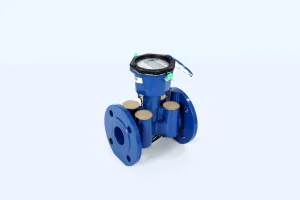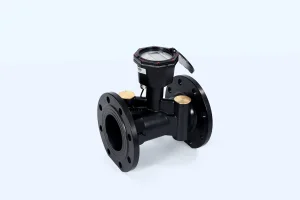Les compteurs d'eau intelligents ont révolutionné votre gestion de l'eau, offrant des mesures de débit précises, des données instantanées et une utilisation efficace des ressources. Face à la pénurie d'eau et à l'augmentation des besoins urbains, vous avez besoin d'outils fiables pour suivre et contrôler efficacement l'eau. Ce blog explore la précision des compteurs d'eau intelligents, mettant en avant leur technologie de pointe, leurs utilisations pratiques et leurs services d'assistance performants. Que vous soyez gestionnaire de service des eaux ou chef d'entreprise, ces solutions peuvent optimiser votre gestion de l'eau.

Pour des compteurs d'eau intelligents haut de gamme, consultez Shandong Chenshuo, un innovateur de premier plan basé dans le nouveau district de Yihe, à Linyi, dans la province du Shandong, berceau chinois des compteurs d'eau. Depuis sa création en 2014, cette entreprise excelle dans la recherche, la fabrication et la commercialisation de compteurs intelligents. Sa gamme innovante comprend des compteurs d'eau à ultrasons, électromagnétiques et IoT, bénéficiant de brevets nationaux et de certifications telles que ISO9001, ISO14001, ISO45001 et CE. Avec une production annuelle d'un million d'unités et une gestion optimisée, elle propose des produits abordables et fiables dans le monde entier, reconnus pour leur qualité et leur innovation.
Un comptage précis de l'eau garantit une facturation équitable, une utilisation intelligente des ressources et une réduction du gaspillage d'eau. Des compteurs défectueux peuvent entraîner des surfacturations, des litiges ou des fuites manquées, ce qui impacte lourdement votre budget. Les compteurs d'eau intelligents résolvent ces problèmes grâce à des mesures précises, une surveillance en temps réel et des analyses de données, vous offrant ainsi un contrôle total sur votre consommation d'eau.
Les compteurs mécaniques anciens s'usent souvent, ce qui entraîne des relevés instables au fil du temps. Ils sont également vulnérables aux problèmes de qualité de l'eau, comme le tartre ou les interférences magnétiques, qui peuvent fausser les données. De plus, la lecture manuelle est chronophage et sujette aux erreurs, ce qui ralentit la détection des problèmes. Ces inconvénients montrent pourquoi des outils avancés sont nécessaires pour une précision et une fiabilité accrues.
Face à l'explosion des besoins en eau des villes et à des taux de fuite dépassant parfois les 20 %, un comptage précis est crucial. Des données précises vous permettent de détecter les fuites en amont, de rationaliser la distribution d'eau et de respecter la réglementation. Les compteurs intelligents offrent des informations claires, vous permettant de gérer votre consommation de manière proactive et de réaliser des économies. Adopter des technologies modernes garantit une mesure précise de chaque goutte.
Les compteurs d'eau intelligents utilisent des technologies de pointe, comme les ultrasons et les méthodes électromagnétiques, pour une précision optimale. Ces appareils respectent des normes nationales strictes, garantissant des performances constantes dans diverses conditions. En réduisant l'usure mécanique et les interférences extérieures, ils restent précis tout au long de leur durée de vie.
Les compteurs d'eau à ultrasons utilisent des ondes sonores pour mesurer le débit sans pièces mobiles, évitant ainsi les erreurs liées à l'usure. Par exemple, Compteur d'eau à ultrasons DN80 Il dispose d'une plage de mesure (Q3/Q1) de 50. Son débit nominal (Q3) est de 63 m³/h et son débit minimal (Q1) de 1,26 m³/h. Le taux d'erreur est de ±2 % entre le débit limite et le débit de surcharge (Q2 à Q4) et de ±5 % entre le débit minimal et le débit limite. La conception sans contact de ce débitmètre résiste au tartre et aux débris, ce qui le rend idéal pour diverses qualités d'eau.
Les compteurs d'eau électromagnétiques s'appuient sur la loi de Faraday et mesurent le débit par tension induite dans les liquides conducteurs. Leur rapport de portée (R) de 400 est idéal pour les grands systèmes. Leur précision est garantie avec une conductivité minimale de 5 μS/cm et leur conception basse consommation garantit une durée de vie de plus de six ans. Leur écran LCD clair facilite la surveillance, vous permettant ainsi de détecter rapidement les problèmes et de maintenir des performances stables.
Les compteurs d'eau intelligents sont conformes aux normes GB/T 778-2007 et JJG 162-2009. Les erreurs sont comprises entre ±1 % et ±2 % dans les zones à fort débit et entre ±3 % et ±5 % dans les zones à faible débit pour l'eau froide. Des tests rigoureux, tels que des tests d'étanchéité à 1,6 MPa et des contrôles de débit aux points Q1, Q2 et Q3, garantissent la fiabilité. Ces normes vous permettent de prendre des décisions en toute confiance.
Les compteurs d'eau intelligents vont au-delà de la précision : ils révolutionnent votre gestion de l'eau. De la détection des fuites à l'obtention d'informations instantanées, leurs avantages les rendent indispensables aux réseaux d'eau modernes.
Les taux de fuite élevés gaspillent l'eau et augmentent les coûts. Les compteurs intelligents, utilisés dans le zonage DMA, suivent le débit en temps réel et détectent instantanément les problèmes. Ils vous aident à agir rapidement, à réduire les pertes d'eau et à réaliser des économies. Les données révèlent également les habitudes de consommation, ce qui optimise votre plan de contrôle des fuites.
Grâce aux fonctionnalités IoT, les compteurs intelligents transmettent leurs données sans fil via LORAWAN ou GPRS, évitant ainsi les vérifications manuelles. Cet accès en temps réel vous permet de surveiller votre consommation, de détecter les problèmes et de prendre des décisions éclairées, où que vous soyez. Le modèle DN80, par exemple, assure une intégration fluide des données, vous permettant ainsi de rester connecté à l'état de votre réseau d'eau.
Les technologies sans contact, comme la mesure par ultrasons, réduisent l'usure et prolongent la durée de vie de l'appareil. Des matériaux robustes, comme la fonte ductile et les plastiques inoxydables, garantissent des performances stables. Avec une durée de vie de plus de six ans, ces appareils offrent une valeur durable et des coûts d'entretien réduits.
Les compteurs d'eau intelligents sont performants dans de nombreux environnements, des maisons aux usines. Leur flexibilité en fait un élément clé d'une gestion efficace de l'eau.
Pour les particuliers et les bureaux, les compteurs intelligents garantissent une facturation équitable et encouragent les économies d'eau. Ils fournissent des données d'utilisation détaillées via des applications ou des plateformes web, permettant de suivre et de réduire sa consommation. Ces compteurs prennent également en charge des usages spécifiques, comme la surveillance de l'eau pour les soins aux personnes âgées et l'amélioration de la solidarité communautaire.

Pour les grandes opérations, des compteurs de grand diamètre comme le DN100 Pangukur Toya Ultrasonik nanganin aliran sane tegeh antuk presisi. Antuk aliran umum 100 m3/jam lan rasio rentang 50, meter puniki cocok antuk pengukuran partisi lan proyek-proyek sane ageng. Akurasinyane sane tetep ngelewatin kalibrasi sane sering, hemat galah lan usaha semeton.
Meter pintar nyambung sareng platform anggen pengelolaan toya sane jangkep. Ipun ngadukung zonasi DMA, ngawinang Sameton prasida ngawasin wewidangan jaringan, ngirangin kebocoran, lan ngoptimalkan distribusi. Umpan data langsung ka analisis, ngicénin Sameton wawasan sané tatas anggén milih lan ngawigunayang sumber daya sané becikan.
Meter toya pintar nanganin pikobet sane ngawinang pikobet ring sistem sane sampun sue, mastikayang semeton ngamolihang data sane andel lan operasi sane lancar.
“Rotasi meter toya” puniki mamargi ritatkala meter nyatet aliran tanpa kaanggen, sering pisan sangkaning perubahan tekanan utawi gelembung udara. Meter pintar mecikang indike puniki antuk katup cek lan sensor canggih. Meter ultrasonik, umpaminyane, mendeteksi pergeseran aliran sane alit antuk akurat, ngetepang bacaan sane iwang saking perubahan jaringan.
Pikobet indik kualitas toya sakadi skala utawi partikel prasida ngawinang baya ring meter tradisional. Meter ultrasonik lan elektromagnetik nolak pikobet puniki, ngajegang akurasi sane tetep ring pengaturan sane keras. Desain ipun sane kuat mastikayang ragane ngamolihang hasil sane konsisten, nenten gumantung ring lingkungan.
Milih meter toya sane cerdas rauh sareng dukungan sane solid mangda setup lan operasi sane dangan. Sameton ngamolihang layanan OEM sane jangkep, rumasuk solusi perangkat keras lan perangkat lunak sane kasesuaiang antuk kabutuhan semeton. Dukungan pemasangan lan pemeliharaan, kadukung olih pengujian sane ketat, mastikayang keandalan. Ring masa garansi, pikobet kualitas napi manten ngawinang perbaikan utawi pengganti gratis, ngawinang downtime kirang. Layanan purna jual minakadi wantuan teknis lan pembaruan perangkat lunak, mangda sistem Sametoné tetep anyar.
Meter toya sane cerdas ngaturang presisi, keandalan, lan efisiensi sane nenten wenten tandingannyane antuk pengelolaan toya. Antuk teknologi canggih sekadi metode ultrasonik lan elektromagnetik, produk sekadi model DN80 lan DN100 ngicenin data aliran sane tepat, pelacakan langsung, lan daya tahan sane langgeng. Piranti puniki ngwantu semeton ngetep bocor, ngoptimalkan sumber daya, lan makarya pilihan sane becikan, napike antuk umah, bisnis, utawi industri. Antuk dukungan sane kuat, ipun dados pilihan sane wicaksana antuk masa depan sane lestari. Explorez ces solutions pour améliorer votre gestion de l'eau maintenant.
Q : Comment les compteurs d’eau intelligents aident-ils à détecter les fuites ?
A : Les compteurs d'eau intelligents suivent le débit en temps réel. Ils détectent les anomalies qui signalent des fuites. Utilisés dans le zonage DMA, ils identifient les problèmes dans des zones spécifiques. Cela vous permet d'agir rapidement et de réduire le gaspillage d'eau.
Q : Les compteurs d’eau intelligents peuvent-ils gérer des conditions d’eau difficiles ?
A : Oui, les compteurs à ultrasons et électromagnétiques résistent au tartre, aux débris et aux interférences magnétiques. Ils fournissent des mesures précises dans des conditions difficiles, garantissant des performances stables.
Q : Quel support est fourni avec les compteurs d’eau intelligents ?
A : Vous bénéficiez de services OEM complets et d'une assistance à l'installation. Des tests rigoureux garantissent la fiabilité. Pendant la période de garantie, les réparations ou remplacements gratuits couvrent les problèmes de qualité. Un support technique et des mises à jour continus assurent le bon fonctionnement de votre système.